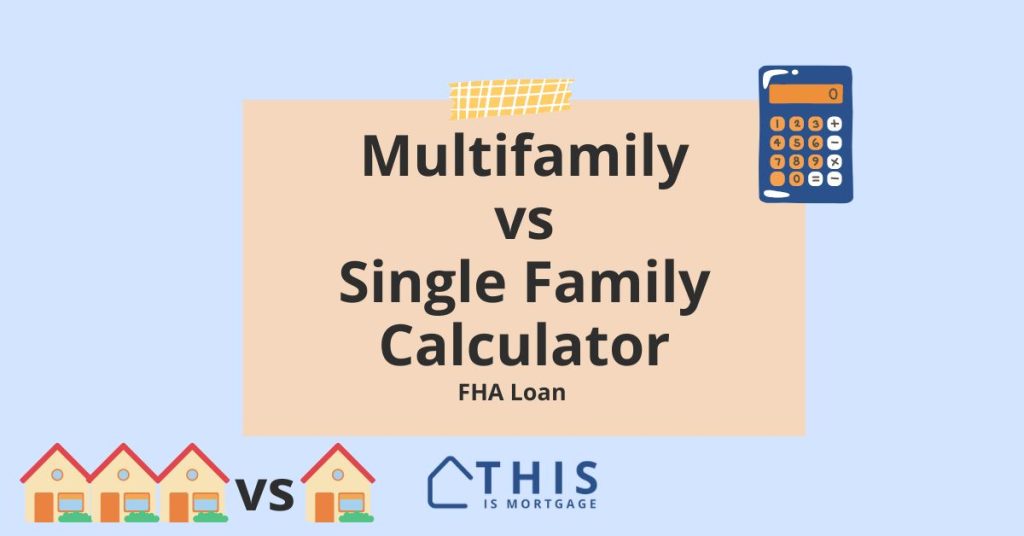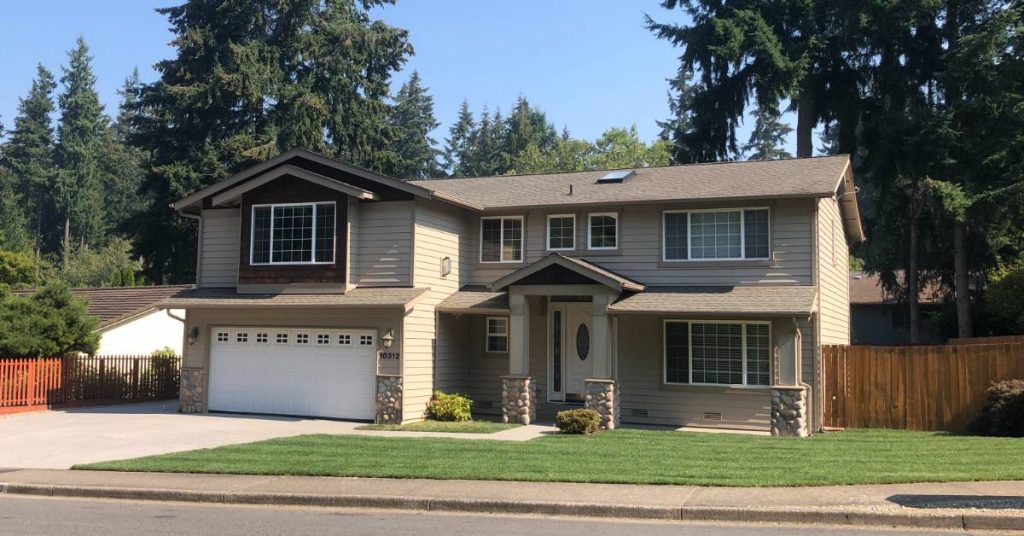When it comes to buying your first house, you can go the traditional route and buy a single-family home.
But if you’re the kind of person who likes to think differently, a 2-4 unit home might sound more attractive. You own a home and collect rental income.
And with a 3.5%-down FHA loan, the idea sounds even better.
But there are many factors when buying a primary home that’s also an investment home. See which one might be better for you.
Connect with a lender to check your FHA multifamily eligibility.
FHA duplex calculator: multifamily vs single-family
FHA Multifamily vs Single Family Calculator
Multifamily
Single Family
Real monthly cost
Total Monthly Payment
$
$
Payment after rental income
$
$
Qualification DTI
Front (Housing) DTI*
%
%
Back (Total) DTI*
%
%
More
*Calculates based on employment income plus 75% of projected rents.
Payments, interest rates, and other details are for example purposes only and do not constitute a quote or commitment to lend.
Start your multifamily pre-approval with a lender.
Single-family home vs multi-family home pros and cons
House hacking with FHA can be a great idea. That’s why so many people are doing it. However, it’s not as glamorous as Instagram would have you think. Here are pros and cons of buying a 2-, 3-, or 4-unit home.
Multifamily vs single family: pros
Use future rental income to qualify: FHA allows you to use future rents to qualify even if you have no landlord experience. This means you might qualify for a higher purchase price than buying a single-family home.
Get help with the mortgage: Your tenants’ rent payments help you pay your mortgage. This also comes in handy in case of a job loss or financial emergency. You have multiple streams of income.
Get landlord experience: Managing a property is a valuable skill. You learn “property management” as well as “people management.” You can use these skills in all sorts of roles in the future, well beyond owning investment properties.
Low down payment: With FHA, you can own a duplex, triplex, or fourplex with just 3.5% down. Conventional loans allow 5% down on a 2-4 unit as of November 2023.
Get started earlier: It could take you 10 years or more to acquire the financial strength to buy an investment property if you buy a single-family home first. With FHA multifamily, you get started on your real estate endeavors now.
Move-up ability: After 12 months, you can legally move out of the property and convert the whole thing into an investment property.
Future cash flow and income stream: A 2-4 unit property will generate significant cash flow if you hold it long enough. In fact, it could be enough to support your retirement someday. But even before that, it could give you an additional income source to fall back on if you lose your primary income.
Speak with a lender to see if you qualify for a 2-4 unit home with FHA.
Multifamily vs single family: cons
Higher payment: Even though you’ll be collecting rent, your mortgage payment will be higher. Multifamily homes cost more. If your renter doesn’t pay, you still have to.
Higher initial cost: A larger purchase price means more down payment dollars. Even at 3.5%, a $400,000 fourplex requires a $14,000 down payment. Then, with closing costs and prepaid items, you’re looking at a substantial upfront cash requirement for a multifamily home.
Cash reserves: You need 3 months of full payments in reserve after closing for a 3- or 4-unit property. Most single-family residence purchases don’t require any reserves after closing.
Harder to sell: Right now, house hacking is en vogue. But someday, the pendulum will swing and fewer people will be interested in buying a duplex, triplex, or fourplex. Don’t plan on selling the property for a profit in a few years.
Bigger learning curve: Owning a home for the first time is hard enough. But there’s a lot more to learn when you’re a landlord. From local laws to marketing to repairs to managing tenants, it could be an overwhelming first year.
Legal risk: Renting to others always involves risk. Someone getting hurt on your property due to negligence or lax upkeep can mean a big lawsuit. You’ll need a hefty insurance policy and make sure you keep up with maintenance and tenant requests.
FHA self-sufficiency test: 3- and 4-unit properties must pass the self-sufficiency test which tells FHA that the property can support itself if HUD has to foreclose.
Hard to get an accepted offer: 2-4 unit properties are popular right now. You will encounter all-cash investors and other buyers with large down payments bidding on the home. You may have to bid above asking, offer big earnest money, and put more than 3.5% down.
More stuff can break: With a single-family home, you have one stove, one furnace, etc. With a duplex, triplex, or fourplex, you 2x, 3x, or 4x your chances of breakdowns.
Buying a multifamily home isn’t for everyone, so make sure you’re prepared for the additional effort and expense of owning one.
Connect with a lender to check your FHA multifamily eligibility.
Difference between single-family and multifamily, according to FHA
A single-family dwelling is a home that is originally constructed for one family unit. Typically there’s one kitchen, at least one bathroom, and one main entrance.
A multifamily home is a structure with two to four separate living units, says FHA. Each unit has the regular amenities of a single-family home – everything a person or family would need to live there.
A true living unit, according to FHA, must have all of the following:
- Safe, drinkable water
- Safe sewage disposal
- At least one bathroom with a toilet and bathtub or shower
- Adequate space for “healthful and comfortable living conditions”
- Adequate heat source
- Hot water in the unit
- Adequate electricity
- A kitchen adequate to cook food including a sink with drinkable water and a stove utility hookup
If a property has 4 units, but one doesn’t have a kitchen, FHA will only consider it a triplex.
Is an ADU and 2nd unit?
Keep in mind that just because the home has “two units” with all of the above doesn’t mean it’s a duplex.
If one of the units is “subordinate in size, location and appearance” to the main unit, it’s likely an accessory dwelling unit (ADU), not an additional legal unit. That still might be okay, though. You can use rental income from an ADU to qualify as of October 2023. Here’s a larger discussion on the topic.
FAQ
These terms can be used interchangeably, however, “multifamily” can also mean larger apartment complexes of 5+ units. Anything with 5+ units is considered commercial. When you’re researching online, make sure the information is about residential 2-4 unit homes, not apartment complexes.
Multifamily homes can yield higher cash flow and speed up an investor’s goals. However, they come with higher upfront costs and require more management than a single-family home. Someone looking to buy their first home and invest simultaneously should consider multifamily.
Owning a multifamily home comes with more risk than owning a single-family house. There are more systems that can break. But the biggest risk is having tenants because there’s always a risk of injury from negligence, which could trigger a lawsuit. Someone purchasing a multifamily property should find adequate insurance and make sure the home is always safe and in great condition.
What’s best for you? Single-family or multifamily?
If you have no desire to invest in real estate, by all means just buy a single-family home.
However, if you plan to make real estate a significant part of your future, it’s a great idea to start the process early by purchasing an owner-occupied multifamily property.
Speak to a lender to check your FHA multifamily eligibility.




